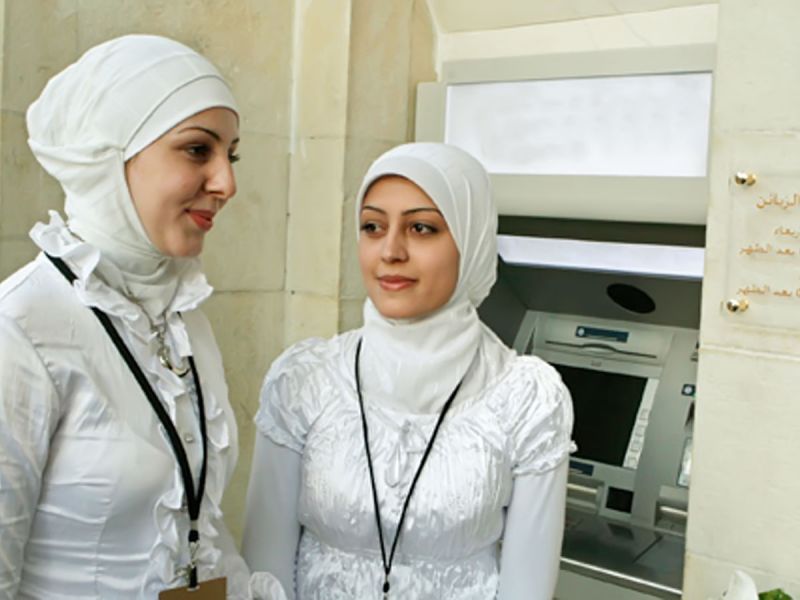
Islamic finance is a relatively young and undeveloped sector of the German financial services industry. Two new entrants in the field have set out to galvanise the sector.
Two German startups, TK Bank and ANAIA, are working hard to expand the “asset-based” or “participatory finance” sector still in its infancy.

Access deeper industry intelligence
Experience unmatched clarity with a single platform that combines unique data, AI, and human expertise.
The term Islamic finance refers to a range of financial transactions that conform to the sharia, or Islamic law.
“The Islamic banking market in Germany is limited, as the acceptance among German Muslims is lower,” Dr. Matthias Casper, an expert in the field.
He believes the origin of German Muslims is the reason. “Many emigrated from Turkey when it was still a secular state, and Islamic finance did not yet exist,” said Dr. Casper. “The Muslims from the Gulf regions, who like to enquire these products, are not very well represented in Germany.”
With its large Turkish immigrant population, it wasn’t surprising that Germany’s first standalone retail Islamic bank has its roots in Turkey.

US Tariffs are shifting - will you react or anticipate?
Don’t let policy changes catch you off guard. Stay proactive with real-time data and expert analysis.
By GlobalDataTK Bank
KT Bank is a wholly-owned subsidiary of Istanbul-headquartered Kuveyt Türk Participation Bank, whose parent organisation is Kuwait Finance House.
The bank has never made a profit since it opened in 2015. But it is looking to 2021 with a positive mindset.
“Our priority target is acquiring more customers and expand our business network, not only physically but also via online banking and other alternative channels,” Alper Nalbant, KT Bank’s division head of Treasury & FI.
“We have been the pioneers in Germany to introduce Islamic finance and remain the only institution with a solid banking licence from BaFin, Germany’s Federal Financial Supervisory Authority,” said Nalbant.
KT Bank deliberately started business operations with a lean product range and its growth has not come easy, partly because the German financial ecosystem is not proactively supportive of Islamic finance, unlike in the UK.
“Our Federal Financial Supervisory Authority advocates that we treat Islamic banks like any other bank,” said Dr. Casper, adding that he doesn’t see this changing any time soon.
“That means they don’t get any special rules and they have to meet the requirements every German bank has to meet.”
INAIA
INAIA is Germany’s only home-grown Islamic fintech. Its current product range extends from gold saving plans to Shariah-compliant investment products like sukuk funds.
This year, it plans to introduce a real estate financing platform and a digital payment solution, INAIA’s founder and Co-CEO Emre Akyel said.
The payment solution will enable direct payment functions specifically for the INAIA Gold Dinar Account and online payments.
“Mastercard already approved us, and we’ll operate under a Belgium-based fintech’s legal umbrella,” Akyel said.
INAIA started as a consulting firm in 2007. Developing digital products, the team ventured into the fintech sector from 2012.
Three years later, the company reached breakeven point and turned cashflow positive. The bootstrapped business banks on equity capital and sustainable growth.
INAIA’s co-founders are the children of Turkish migrant workers. Immigration from Turkey to Germany began in the early 1960s at the height of the Germany’s labour migration. Many of these migrants stayed for good and started their families in Germany.
“The second and third generations of immigrants are integrated [in Germany’s society], educated and more successful. They are now able to build wealth,” Akbiyik said.
Islamic finance Vs Western finance
The most obvious difference when compared with Western banks is that Islamic finance is forbidden to charge interest.
Under Sharia law, money is only a way of defining the value of something and has no value in itself. Therefore, money isn’t allowed to generate more money by being put into a bank account or lent to someone else.
Instead, banks make their money by sharing the risk of their investments with investors, operating on a profit-loss basis.
So rather than making money by offering loans or mortgages and charging an interest rate on them, a sharia-compliant bank would use its depositors’ money to acquire assets, and then share any profits made on those assets with the depositors.







